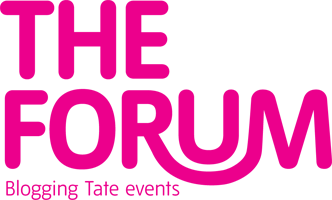Commodity:
1. Something useful that can be turned to commercial or other advantage.
2. An article of trade or commerce, especially an agricultural or mining product that can be processed and resold.
3. Advantage; benefit.
4. (Obsolete) A quantity of goods.
If you were anywhere near the South Bank on the afternoon of the 10 May, you might have seen two figures shrouded in black plastic bags carrying a bucket and a sign stating “Artists say NO to commodity. Please give generously...” Walking from Tate Britain to Tate Modern , the specters of Art's Past and Art's Present collected funds and stares in a bid to alert the passerby to... What exactly? The dangers of being an artist who needs money yet doesn't wish to contribute to commercialism? The perils of commerce that transforms art into articles of trade?
Cack-u-like, a self-described “radical anti capitalist art group”, is behind this cryptic death march. Since 2001, they have aimed to “challenge the inherent elitism in the art world” with performances like Demonstration Against Toffs in Art (2001) and the upcoming exhibition What’s the F@£king Point in Doing Art which will last one evening and will culminate in the works being destroyed and thrown away at the end of the opening. (If you wish to submit rubbish/art the deadline for entries is the 30 August... )
There is certainly a relevance to criticism of the art market and its impact on the lives of artists and the perception of art. As long as criticism of a status quo leads to alternatives, it can be both radical and instrumental in changing the situation. Sadly, Cack-u-like appears to have adopted a rather hopeless view at the moment: “The generalized feeling after these events was the Bourgeoisie domination of the art world is a fait accompli and any form of Demonstration about the situation will merely be either ignored or digested by art institutions and anaethersized [sic.]”
A glimpse at the very productive and compelling arguments of Gustav Metzger , Hans Haacke and other masters of active resistance to the apparent pitfalls of the art world confirms that there is great art to be made out of great dissatisfaction. They have been invigorated to defend their beliefs in the face of ignorance and, although their work is now recognized and respected by art institutions all over the world, they have actively maintained their marginal position. I would say these artists have gained something along the lines of the third meaning of commodity: “Advantage; benefit”. Why chuck it all away?




No comments:
Post a Comment